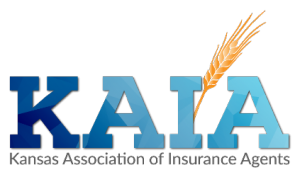Plans are nothing. Planning is everything
I attended my daughter's graduation from St. Louis University, and the commencement speaker was the United States Ambassador to Ireland, Kevin O'Malley. A double SLU graduate (Business, Law) began his comments with a simple statement from former President Dwight D. Eisenhower: "Plans are nothing. Planning is everything." The President's statement referred to the United States' battle plans during World War II. They were continually revising to address changing circumstances. The Ambassador's message to the graduates was while you may think you have a plan for your life, that plan will change as your circumstances change.
The same is true for you as an insurance professional. While you may have a business plan in place, change in circumstances may cause you to modify your plans. As you plan for your agency's future, your and your staff's future, circumstances, mostly in the form of market forces, cause you to change your business plan to adapt to those forces.
And the same is true about agency risk management. Over the last 25-30 years, think about some of the things that have changed the way you do business and helped you to change your risk management. One of the first was the change from agency billed policies to direct bill policies. Until the late 1980s to the early 1990s, virtually all insurance agencies sold the carriers' policies and collected the premiums. Then, carriers began the process of "direct bill," especially for renewals. From a risk management standpoint, this was one of the best improvements as it did two things:
1) took the agencies out of the money handling business, which was a significant cause of E&O loss due to discrepancies regarding payment of premiums, and
2) it removed the agency from the process of notifying the customer when the premium was due and cancellation of the policy for failure to pay, one of the largest areas of E&O loss at the time.
Unfortunately, we still see some claims involving the notification of insureds when their premium is due, even though the agent has no such duty to do so. Still, they're due to the agencies not adapting to changes in the market, which have removed them from this part of the transaction and continuing to insert themselves when they have no such duty. Numerous articles are available on the IIABA Virtual University, and E&O Happens if you want more information about how to avoid this exposure.
Another significant area that has recently been on the rise is that insurance carriers no longer require agents to submit signed applications for insurance policies they write for their customers. Many carriers' online systems may not even allow agents to submit applications or the applications they submit do not match the criteria used to underwrite or price the risk. While the carriers may believe this streamlines the process, it eliminates the ability to defend an E&O claim when a dispute arises on the risk that was insured.
However, we have seen many agencies that have adapted and are planning their internal systems to create appropriate documentation even when the carriers have not done so.
Yet another area that is causing E&O exposures is that of technology in general. Agency websites, Facebook, smartphones, tablets, and many other technology firms were unheard of as little as 20 years ago. Now, they are everywhere and make planning for these technologies crucial to conducting business. You should especially take into account how your agency can protect its information and itself from E&O claims arising from new technology.
As General Eisenhower said, "Plans are nothing. Planning is everything." Protect your agency from potential E&O claims by planning continually to adapt as circumstances change in your business.
Member agencies across Kansas look to KAIA for their agency E&O needs. We offer members exclusive access to market-leading coverage and stable rates through the Big “I” Professional Liability Program and its primary endorsed carrier Swiss Re Corporate Solutions. Not insured with us, get a premium estimate today!
This article is intended to be used for general informational purposes only and is not to be relied upon or used for any particular purpose. Swiss Re shall not be held responsible in any way for, and expressly disclaims any liability arising out of or in any way connected to, reliance on or use of any of the information contained or referenced in this article. The information contained or referenced in this article is not intended to constitute. It should not be considered legal, accounting, or professional advice, nor shall it serve as a substitute for the recipient obtaining such advice. The views expressed in this article do not necessarily represent the views of the Swiss Re Group ("Swiss Re") and/or its subsidiaries and/or management and/or shareholders.
*Richard F. Lund, J.D., is a Vice President and Senior Underwriter of Swiss Re Corporate Solutions, underwriting insurance agents’ errors and omissions coverage. He has also been an insurance agents E&O claims counsel and has written and presented numerous E&O risk management/ loss control seminars, mock trials, and articles nationwide since 1992.
